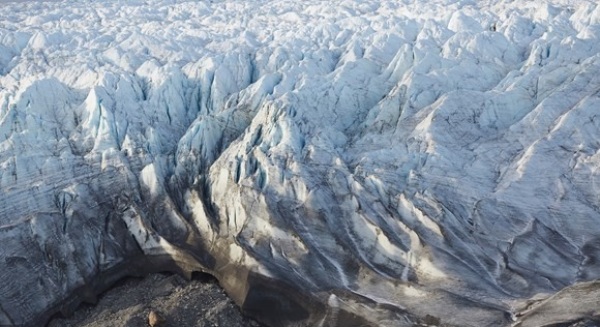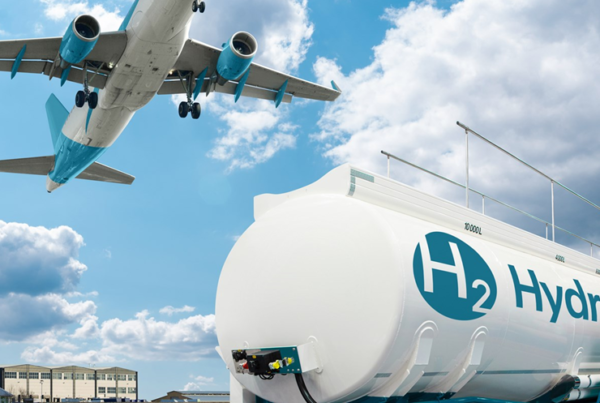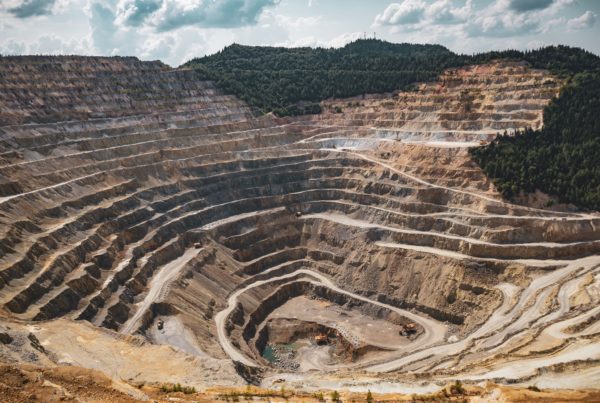
Extreme E’s Scientific Committee is made up of five world-renowned scientists, three of which – Professors Peter Wadhams, Carlos Duarte and Richard Washington – will be joining the championship in Greenland to conduct scientific research and impart their knowledge on the climate crisis. We caught up with them ahead of the Arctic X Prix.
Professor Peter Wadhams is the Head of Extreme E’s Scientific Committee and with 51 years’ worth of Arctic and Antarctic research under his belt, involving 56 field trips so far focussing on ice thickness, icebergs, waves in ice and much, much more – it is no wonder he is also the series’ Arctic expert.
 But let’s go back to the beginning. We asked Peter how it all started. “I have always wanted to be a scientist and have been particularly interested in the ocean, since my family had all been sailors going back three generations,” he says. “An opportunity to begin as an oceanographer arose in 1969 when I was able to sail around North and South America in a Canadian oceanographic expedition. The voyage took us to the Arctic and Antarctic, so this got me focussed on polar oceanography, a field that I have been in ever since.” He became a professor while at the Scott Polar Research Institute in Cambridge University.
But let’s go back to the beginning. We asked Peter how it all started. “I have always wanted to be a scientist and have been particularly interested in the ocean, since my family had all been sailors going back three generations,” he says. “An opportunity to begin as an oceanographer arose in 1969 when I was able to sail around North and South America in a Canadian oceanographic expedition. The voyage took us to the Arctic and Antarctic, so this got me focussed on polar oceanography, a field that I have been in ever since.” He became a professor while at the Scott Polar Research Institute in Cambridge University.
Professor Richard Washington has also been part of the Scientific Committee from the beginning, and like Peter always had an interest in science. He says, “I was one of the lucky ones who knew from school days that I wanted to find out about weather and climate. I didn’t have any expectations that this would involve a career at university or that one day I would be a professor though, that all seemed way out of reach. I feel very lucky that it worked out so well.”
Most recent addition to the Scientific Committee, Carlos, joined the series at the beginning of this year. He has a wealth of experience and says, “I was interested in the oceans, as it remains poorly studied, and ecology, as it seeks to establish connections explaining the architecture of the living biosphere, and these interests converged in driving me to to become a professor in academia.”
 For all three professors the climate crisis has been a big focus. “For most of my career I have been researching how the climate system works,” Richard explains. “It is a complicated mix of things which are very tricky to understand. Climate change is an integral part of how the climate system works now. You can’t understand the climate system without considering climate change. There is a definite sense of urgency in the things we are currently trying to solve.”
For all three professors the climate crisis has been a big focus. “For most of my career I have been researching how the climate system works,” Richard explains. “It is a complicated mix of things which are very tricky to understand. Climate change is an integral part of how the climate system works now. You can’t understand the climate system without considering climate change. There is a definite sense of urgency in the things we are currently trying to solve.”
When did Peter realise this was a very real problem? He says, “For a long time I studied ice as if it were a permanent feature of the world, but then in the 1980s I was doing frequent voyages to the North Pole in UK nuclear submarines and found that the average ice thickness was diminishing. Nobody had noticed this before. The ice has also been shrinking but the thinning was very obvious – it is now more than 50 per cent. This led me to investigate other aspects of the climate, particularly the polar climate, that might be changing.”
Sadly, his findings are that all changes are accelerating, including loss of ice from the Greenland and Antarctic ice sheets, loss of sea ice, decline in global sea level and loss of methane from Arctic seabed due to acceleration of global air temperature rise.
Peter has lost count of how many times he has visited Greenland, but says, “the main changes since the 1980s are that extensive melt occurs in the summer – meltwater flows away in torrents and through drain holes called moulins – whereas no surface melt at all occurred up to the 1980s. Also, the ice that is left is getting dirtier and dirtier, as the melting ice leaves behind accumulated dirt, dust, algae and many other forms of detritus. It is called “black ice” and the more of it there is, the faster the ice sheet melts because of the lower albedo.”
 Richard has also been very involved in Arctic research, specifically glaciers. “Remote, unexplored places are very compelling to me,” he explains. “That work is aimed at understanding what controlled glacial mass balance is, and the extent of arctic glaciers from the perspective of large-scale weather systems across the northern hemisphere. I’ve since worked a lot on weather and climate in the tropics and in deserts, and we are beginning to realise how the Arctic influences important changes in climate across the world. The Arctic is warming extremely fast.”
Richard has also been very involved in Arctic research, specifically glaciers. “Remote, unexplored places are very compelling to me,” he explains. “That work is aimed at understanding what controlled glacial mass balance is, and the extent of arctic glaciers from the perspective of large-scale weather systems across the northern hemisphere. I’ve since worked a lot on weather and climate in the tropics and in deserts, and we are beginning to realise how the Arctic influences important changes in climate across the world. The Arctic is warming extremely fast.”
Carlos has been engaged in polar research for three decades, initially in Antarctica but in the last 15 years increasingly in the Arctic. He says, “This is the battleground of the climate challenge, where changes are already dramatic and can cascade to affect the entire Earth System.”
Peter was actually one of the people who advised Extreme E to select Kangerlussuaq as a race location because he had worked there before and knew some car testing had taken place many years ago.
Whilst in Greenland for the Arctic X Prix he plans to conduct some research of his own. He explains, “I hope to collect about 1,000 samples of ice crystals from the top of the melting ice cap. In August, each melting ice crystal is associated with a small speck of dirt or algae, and these are what I will be collecting for later microscopic analysis at Turin Polytechnic. I am especially interested in how the recent wildfires in North America have led to a greater deposition of black ice, which may be leading to faster ice loss.”
Carlos will be conducting preliminary research on the chemical changes associated with the melting of the ice cap, and how they may affect the carbon system of the ocean and its capacity to remove CO2 from the atmosphere.
As part of its Legacy Programme, the series is also working with UNICEF to design and develop educational resources to enable teachers and school children across Greenland to understand and start to address the climate related issues that are putting their futures and those of generations to come at risk. Richard has been instrumental in the programme. He explains, “I love my job as a professor because it involves teaching as well as research. It seemed very natural for me to couple my Extreme E work with that educational project. It closes a circle for me.”
In the global climate crisis Greenland is very significant. Peter says, “The island is now the major source of fresh water addition to the global ocean, i.e. the main source of global sea level rise. This is accelerating and will continue to do so, causing global sea levels to become seriously affected by perhaps four to five metres by the end of the century.”
Richard continues, “For a decade or two I have been teaching students about the importance of the Greenland Ice Sheet and the record of climate change it contains that goes back hundreds of thousands of years. That record includes some frightening examples of how the climate system can respond viciously when provoked and, of course, we are provoking the climate system a lot now. My colleagues on the Science Committee in Extreme E are experts in ice and on tipping points in climate. Working with them has been an eye-opener regarding the perilous position we are in with respect to the Greenland Ice Sheet.”
 Carlos adds, “Climate change in the Arctic already reached “dangerous” levels a decade ago, and these changes have both local and global impacts. I have been to Greenland about 15 times. It is a beautiful place and quite wild, one of the largest islands in the world with only about 56,000 people scattered across vast distances, majestic landscapes, productive marine ecosystems and very, very kind people.”
Carlos adds, “Climate change in the Arctic already reached “dangerous” levels a decade ago, and these changes have both local and global impacts. I have been to Greenland about 15 times. It is a beautiful place and quite wild, one of the largest islands in the world with only about 56,000 people scattered across vast distances, majestic landscapes, productive marine ecosystems and very, very kind people.”
“Greenland is a strategic location in the Earth System, affecting many processes – sea level rise and ocean circulation, for example – that regulate the Earth’s climate. Understanding the changes in Greenland is of fundamental importance to project future global trajectories. Kangerlussuaq itself has a fjord that carves deepest into the interior of Greenland and is, therefore, the vantage point to study melting rates and associated changes in the Greenland Ice Cap.”
Can a motorsport series really make a difference to climate crisis though? Peter says, “Definitely! The series takes us to rarely-visited areas and once there we have two types of project; legacy projects where efforts are made to help local people to leave behind a permanent positive mark and science support projects.”
 Richard adds, “For a long time climate scientists have been issuing dire warnings about climate change and what the future holds given all our carbon emissions. It is obvious that we need solutions to be able to respond to the warnings and Extreme E is leading the way towards new methods of doing things. Extreme E balances the negative with the positive.”
Richard adds, “For a long time climate scientists have been issuing dire warnings about climate change and what the future holds given all our carbon emissions. It is obvious that we need solutions to be able to respond to the warnings and Extreme E is leading the way towards new methods of doing things. Extreme E balances the negative with the positive.”
“My involvement in Extreme E has been a wonderful experience from any number of perspectives and one of those is the chance to talk to important people about climate change and environmental problems. I have been struck by how receptive journalists and people at the top of their profession in motorsport are to the climate change story.”
On his short time as part the Committee so far, Carlos says, “Extreme E has the power to communicate and drive meaningful climate action. It is huge to give us scientists a reach that we rarely have access to. Our audiences are small and typically restricted to the segments of society that already have an interest on the climate crisis and biodiversity. Through the massive viewers of sport, we have an opportunity to reach much broader audiences, which is important as prevailing in our race to stabilise the climate requires all hands on deck. In addition, Extreme E sponsors and partners bring about a unique ecosystem of economic and industrial sectors that are key in delivering solutions from their own industries as required to achieve the transformative change required to overcome the climate crisis.”
 We asked all three Professors how the world can change to protect our planet. Peter says, “Firstly we must stop using fossil fuels and do so very quickly. A switch to electric traction, of course, which we strongly recommend by our example, must be accompanied by a switch to renewable fuels (solar, wind etc) otherwise there is no gain. However, we also need to go further. Many climate scientists think it is enough to reduce our emissions of CO2, but this is not the case. CO2 stays in the atmosphere for hundreds of years, so to save our climate we have to actually take CO2 out of the air. Techniques exist to do this called Direct Air Capture and we must make a huge effort in this direction. This will be the subject of my next book, “Mining the Sky”.”
We asked all three Professors how the world can change to protect our planet. Peter says, “Firstly we must stop using fossil fuels and do so very quickly. A switch to electric traction, of course, which we strongly recommend by our example, must be accompanied by a switch to renewable fuels (solar, wind etc) otherwise there is no gain. However, we also need to go further. Many climate scientists think it is enough to reduce our emissions of CO2, but this is not the case. CO2 stays in the atmosphere for hundreds of years, so to save our climate we have to actually take CO2 out of the air. Techniques exist to do this called Direct Air Capture and we must make a huge effort in this direction. This will be the subject of my next book, “Mining the Sky”.”
Richard adds, “Solving the climate crisis requires lots of changes to the way we do things, and we know what many of those changes are. Invoking that change is difficult, though, especially on the scale that is urgently needed. Extreme E is showing us how even something like motorsport which has typically relied on fossil fuel-based technology can be different and can be environmentally friendly – while also being exciting and Extreme!”
Carlos concludes, “If we fail to address this crisis, we are committing generations to a difficult future. Our generation has an unprecedented responsibility to determine how the future will be for our species. We can, in the first place, roll our sleeves up and move into action from whatever role we play in society, as citizens, as professionals, as parents and as voters. No contribution is too small, as we will only prevail if we all contribute.”
We look forward to hearing from all three professors while in Greenland and sharing their knowledge far and wide so the world can work together to protect our planet.
Read the most up to date Fuel Cell and Hydrogen Industry news at FuelCellsWorks




